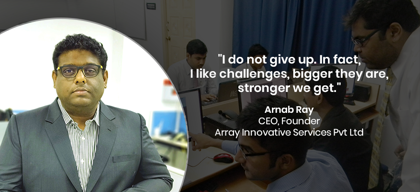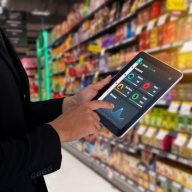What Covid-19 has taught us

Retail
211 week ago — 5 min read
The world-renowned British Prime Minister Winston Churchill had said, “Never let a good crisis go to waste”. The COVID-19 pandemic is one of the biggest crises to have befallen mankind. The lessons it leaves in its wake should, therefore, be taken very seriously indeed. In India, the outbreak, and the subsequent lockdown that has been imposed to control its spread, have brought most economic activities to a virtual standstill. Retail is among those sectors that have been affected the most. Industry leaders and experts estimate that recovery could take anywhere from 12 to 18 months. This is under the assumption that the lockdown is a one-off occurrence and that the pandemic will die out for good. However, unless a vaccine for COVID-19 is discovered, there is a possibility that the epidemic might recur.
Given that the year ahead is still shrouded in uncertainty, retailers should build resiliency in their business operations to be prepared for future emergencies.
There are many instances around the world of the virus resurfacing once restrictions were lifted after a seeming return to normalcy. Experts have put forth the idea of short, periodic shutdowns to keep the pandemic in check till a cure is found. Given that the year ahead is still shrouded in uncertainty, retailers should build resiliency in their business operations to be prepared for future emergencies.
Also read: Building resilience
Traditional supply chain and delivery models need to be transformed.
Retailers must make their logistics and distribution operations smarter and more agile than before. The existing inventory must be smartly balanced across stores and rolled through the upcoming monsoon and winter seasons. Moreover, retail businesses should consider adopting a brick-and-click (or omni-channel) model. In case physical outlets are closed for any reason in future, retailers should be able to leverage their existing storage, distribution and warehousing infrastructure through e-commerce to sell goods to customers.
It is a good time for them to re-look at their last-mile delivery models, and explore partnerships with delivery services, online marketplaces, and even kirana stores to expand their reach. Supply chain heads must identify potential risk areas and modify their operating models to minimize these risks. Technologies such as Artificial Intelligence, Machine Learning, Internet of Things, Big Data, and Analytics can aid in decision-making and in making the supply chain more resilient.
Also read: Supply chain disruption: What firms can learn
Retailers and consumer brands must plan for contingencies.
Companies, especially those with consumer-facing brands, should define their business priorities more sharply and identify products that should be given precedence over others in case of limited availability of raw materials, supply chain infrastructure, manpower, and retail space. High-volume approaches must make way for high-value ones.
The pandemic has emphatically underlined the importance of cash for retail businesses. Retailers must not only assess their current liquidity positions but also employ cash-forecasting-and-management tools that will predict future cash flow under different business scenarios, and even crises. They must have robust contingency plans in place with buffers for absorbing the unexpected and unforeseen. Such plans will be more effective if they are worked out in conjunctions with the company’s suppliers.
Retail companies must identify the skills, values, and employee groups that will drive business growth in future. They should anticipate the shifts in job roles, activities and behaviours that are likely to happen in the future and start reskilling their employees accordingly. It is important that they do not abandon such initiatives once the pandemic passes but continue with them regardless.
The retail experience must include safety and hygiene.
With retail stores gradually opening as we near the end of the lockdown, the onus is on retailers to make these spaces safe and hygienic for consumers. Social distancing and a sense of wariness will likely persist for a while even after the lockdown ends and the curve of the pandemic flattens. Retailers must, therefore, demonstrate that they genuinely care for the safety of consumers. Customer experience has always been an important focus for retail businesses, but the pandemic will usher in a whole new level of hyper customer-centricity.
Also read: Post Covid-19 lockdown - Getting your workplace ready
Article by Rakesh Biyani in STOrai Magazine. Rakesh Biyani is Managing Director, Future Retail. He is also a Non-Executive Director of Future Lifestyle Fashions.
Disclaimer: The views and opinions expressed in this article are those of the author and do not necessarily reflect the views, official policy or position of GlobalLinker.
Most read this week

















Comments
Please login or Register to join the discussion